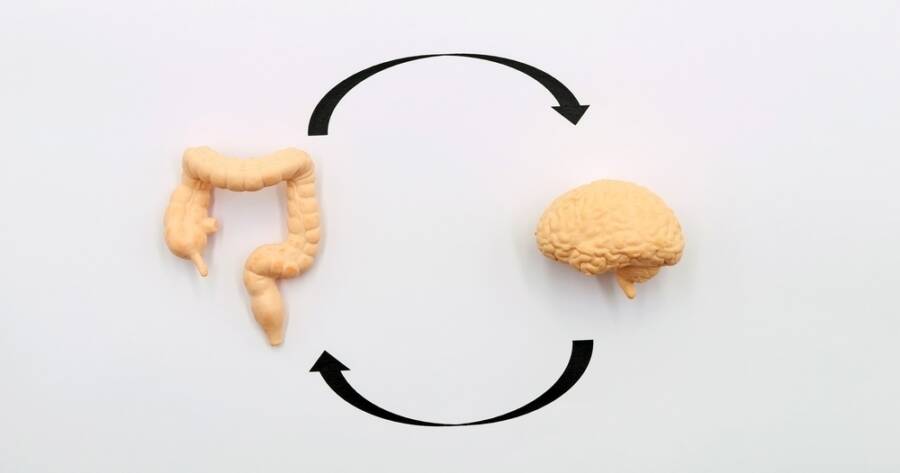The connection between the gut and brain is deeper than once believed, influencing everything from mood and memory to digestion and immunity. This two-way communication system—known as the gut-brain axis—relies on a healthy balance of gut bacteria to function well. By incorporating probiotics, prebiotics, and targeted nutrition strategies, you can support this vital link, improve mental clarity, reduce inflammation, and foster a more resilient mind-body relationship from the inside out.
What Is the Gut-Brain Axis?
The gut-brain axis is the two-way connection between the gastrointestinal tract and the brain. It’s made up of nerves, hormones, and immune signals that allow your gut and brain to constantly exchange information. One key player in this system is the vagus nerve, which runs from the brainstem to the abdomen and helps control mood, digestion, and even heart rate.
Another major component is the gut microbiome—the collection of bacteria, fungi, and other microbes living in your digestive tract. These microorganisms don’t just help with digestion; they also produce neurotransmitters like serotonin, dopamine, and GABA, which influence your mental and emotional state. In fact, about 90% of the body’s serotonin is made in the gut.
When the gut is in balance, the brain often benefits. But when the gut microbiome is out of sync—due to stress, poor diet, or antibiotics—it can lead to inflammation, anxiety, and brain fog. Understanding and supporting the gut-brain axis can help promote both digestive and mental health.
Probiotics: The Good Bacteria
Probiotics are live microorganisms that, when consumed in adequate amounts, provide health benefits—especially for the digestive system. They help maintain a healthy balance of gut bacteria, support the immune system, and may reduce inflammation linked to mental health conditions.
Common sources of probiotics include yogurt with live cultures, kefir, kimchi, sauerkraut, miso, and certain cheeses. These foods introduce beneficial bacteria like Lactobacillus and Bifidobacterium into your system. Probiotic supplements are also widely available, but choosing a strain that matches your needs is important.
Studies suggest that certain probiotic strains can help reduce symptoms of anxiety and depression. For example, research published in the journal Nutrients found that people who took specific probiotics reported better mood and lower stress levels. While not a cure-all, probiotics are a promising tool for supporting the gut-brain axis when used as part of a broader wellness strategy.
Prebiotics: Fuel for Gut Health
Prebiotics are different from probiotics—they’re not live bacteria but types of dietary fiber that nourish the good bacteria already in your gut. Think of them as food for your microbiome. When you eat prebiotic-rich foods, you help beneficial microbes grow and thrive, supporting better gut and brain function.
Sources of prebiotics include garlic, onions, leeks, asparagus, bananas, oats, apples, and chicory root. These foods contain fibers like inulin and oligosaccharides that the body doesn’t digest but gut bacteria can ferment.
The fermentation process produces short-chain fatty acids (SCFAs) such as butyrate, acetate, and propionate. These compounds help reduce gut inflammation and may influence brain health by protecting the blood-brain barrier and regulating mood-related hormones. Including prebiotic foods in your diet regularly helps keep your gut ecosystem diverse and active.
Diet Strategies for a Healthy Gut-Brain Connection
What you eat plays a huge role in shaping your gut microbiome. A diet high in processed foods, sugar, and artificial additives can disrupt microbial balance, while a diet rich in whole foods supports it. Eating with the gut-brain axis in mind means prioritizing foods that feed both your body and your microbes.
Focus on variety. Eating a wide range of fruits, vegetables, whole grains, legumes, and fermented foods helps diversify your gut bacteria. The more diverse your microbiome, the more resilient it is to stress and illness.
Limit highly processed foods and excessive added sugars, which can encourage the growth of harmful bacteria. Instead, choose fiber-rich carbohydrates and lean proteins that stabilize blood sugar and support sustained energy.
Hydration also matters. Water helps move food and waste through your digestive tract, supporting healthy bowel movements and nutrient absorption. Some herbal teas, such as peppermint or ginger, may also support gut comfort.
Finally, be mindful of antibiotics. While they’re sometimes necessary, antibiotics can wipe out both good and bad bacteria. After a course of antibiotics, it’s especially important to support your gut with probiotic and prebiotic-rich foods.
Feed Your Gut, Support Your Mind
The gut-brain axis highlights how deeply connected your digestive health is to your mental well-being. Through thoughtful diet choices and the inclusion of probiotics and prebiotics, you can create a strong foundation for both a healthier gut and a calmer, clearer mind.
While there’s still much to learn about this connection, the research is clear: nurturing your microbiome isn’t just good for your stomach—it’s also good for your brain. By treating your gut with care, you give your entire body and mind a better chance to thrive.

